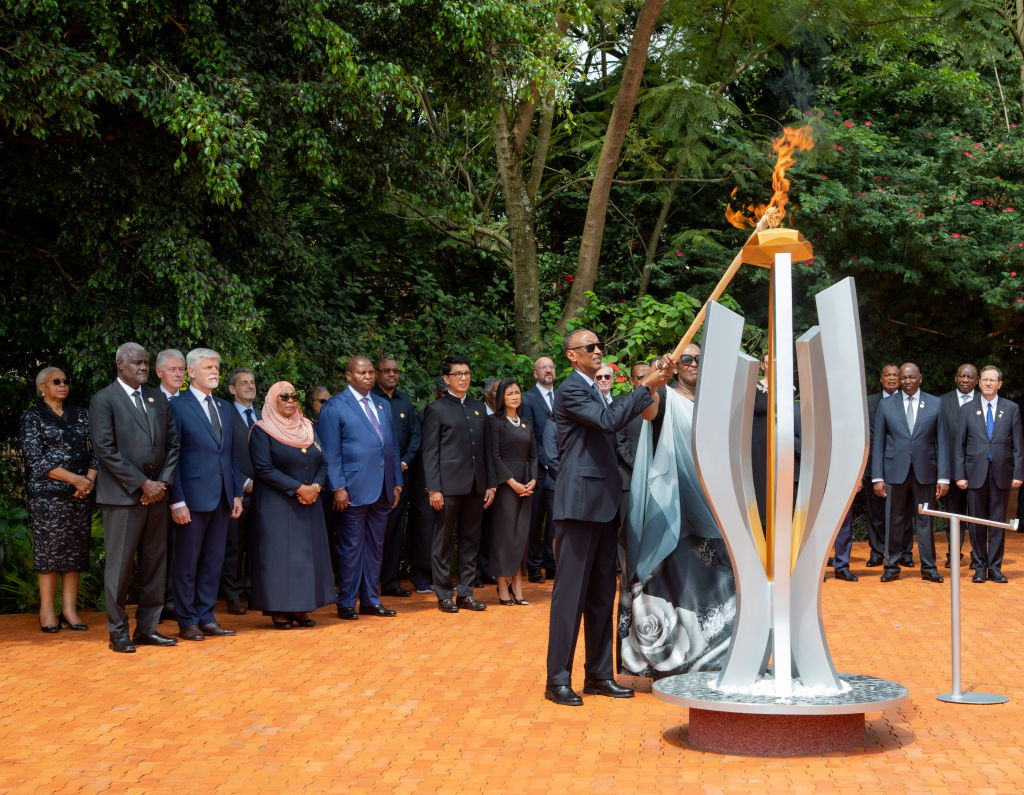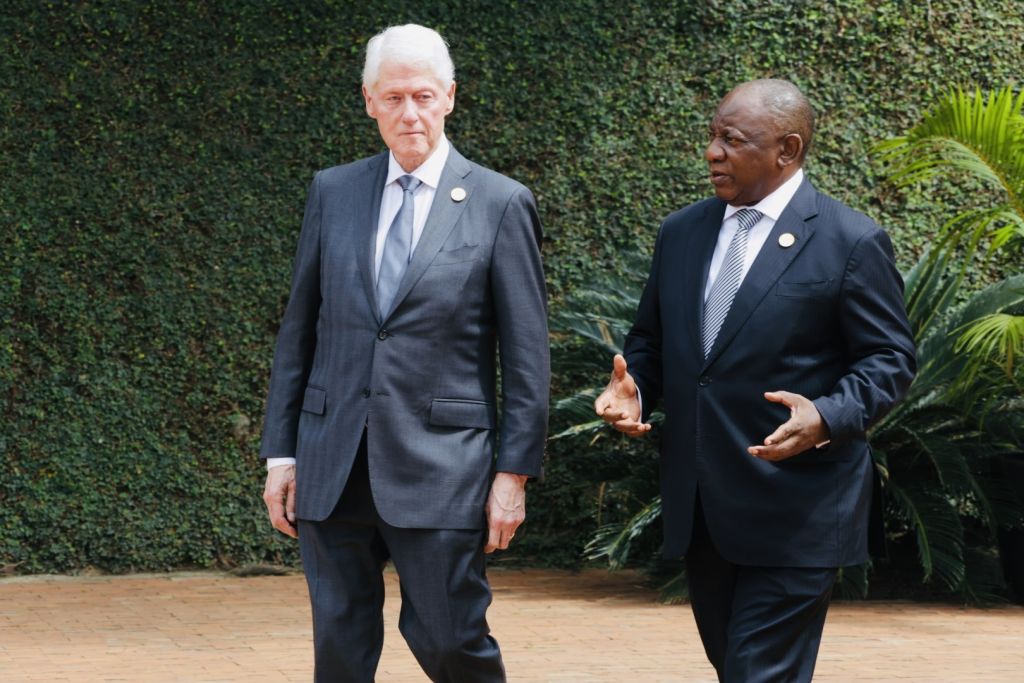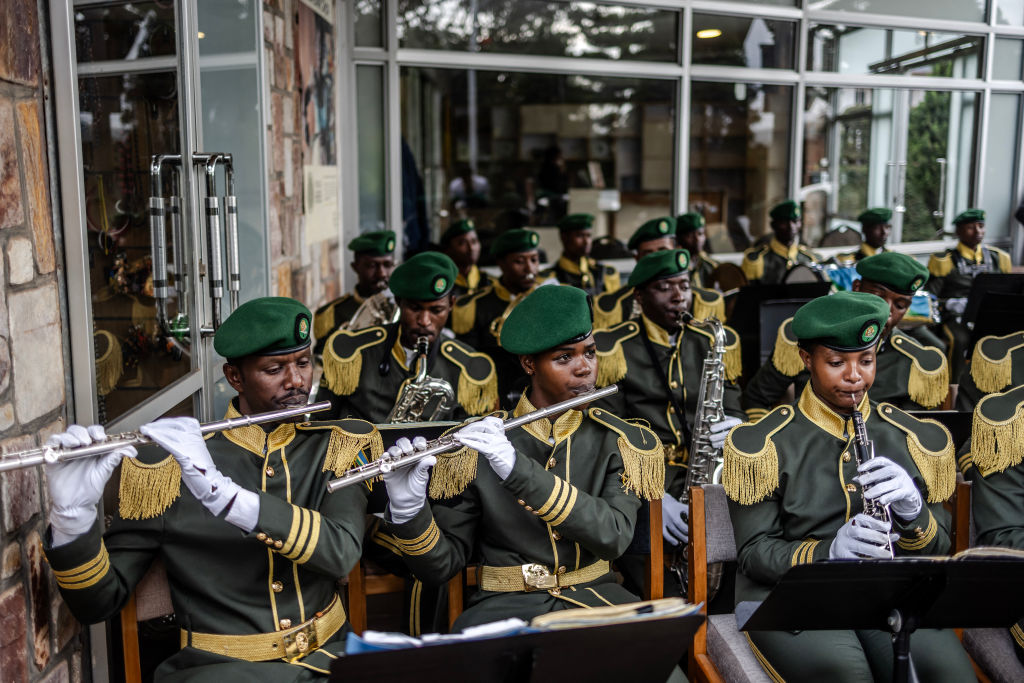
Something is happening in Rwanda right now that is rare in human history. A phoenix is rising from the ashes of colonialism and genocide in defiance of virtually all predictions, sympathetic or critical. Thirty years after the calamity that introduced Rwanda to much of the world, the country is alive with hope, thanks to the resilience and determination of its people.
Today marks the 30th anniversary of the start of the Rwanda genocide on April 7, 1994. Unleashed by the country’s Hutu-dominated government, the genocide is estimated to have killed nearly one million Tutsi and thousands of moderate Hutu. Despite advance warning and vows of “never again,” the outside world did nothing, justifying its inaction in torturous legal reasoning and specious assertions that the unfolding massacre was not really genocide but a local tribal dispute.
It took the Rwandan Patriotic Front (RPF), comprised largely of Tutsi exiles, three months to end the genocide, which interrupted a civil war that had gripped the country for four years. Launched by the RPF in autumn 1990, the civil war threatened Rwanda’s French-supported Hutu government, raising the question of whether Rwanda would remain a single-party state dedicated to Hutu hegemony, or a multi-party state that transcended ethnic division.
The civil war and genocide generated millions of displaced people, many of whom accompanied the murderous government into neighboring countries as the RPF advanced. Curiously, the outside world showed more interest in the fate of the Hutu refugees streaming into what was then Zaire, Burundi, and Tanzania than in the wellbeing of the Tutsi victims, as if embarrassed by its criminal neglect.
More curious still, some countries in Africa and Europe provided safe harbor to the killers, many of whom remain at large today. Some continue to exert outsized influence on African and Western governments, the media, and NGOs, shaping how the international community regards Rwanda’s current government.
But no matter how the outside world reacted, recovery from this cataclysm was never going to be quick or easy. By the time the genocide concluded in July 1994, Rwanda had lost one seventh of its population, half of which had been displaced. The country was ransacked, its treasury looted. Few judges, doctors, or civil servants remained in the country. Meanwhile, from neighboring countries, the perpetrators licked their wounds, rearmed, and resolved to finish the job.
In the midsummer of 1994, the Rwanda Patriotic Army (RPA), which defeated the genocide, was the only authority in town. An effective military machine, the RPA had no experience in public administration, peacekeeping, or trauma care. Sweeping down through the country in pursuit of the killers, the RPA encountered a slaughter bench whose victims included many of the soldiers’ friends and families. In the face of the unspeakable horror, these young men and women might have felt justified unloading on the remaining Hutu population. And some did. But the vast majority did not, thanks to the orders of their commander-in-chief, Rwanda’s current president, Paul Kagame, as laid out in Kagame: The President of Rwanda Speaks by journalist and author François Soudan.
Mr. Kagame is a polarizing figure, celebrated in development circles for Rwanda’s miraculous recovery from genocide, yet criticized by human rights activists for his authoritarianism and stubborn grip on power. There is truth to both accounts. Visit Rwanda’s capital Kigali today and you will encounter not only its vaunted cleanliness and absence of plastic bags, but Africa’s first end-to-end vaccination manufacturing plant, one of the most sophisticated drone delivery testing systems on the planet (which doubles as a blood bank), along with new hospitals, shopping centers, sports venues, and public parks.
On the other hand, later this year Rwanda will hold its fourth post-genocide presidential election, and Kagame, bolstered by a referendum abolishing presidential term limits, is expected to run away with it. From a Western perspective, Kagame’s monopoly on political power coupled with restrictions on civil and political liberty constitute the very definition of dictatorship. Autocracy, despotism, call it what you will. We know it when we see it.

Or do we? Drawn from outside the country, these polarized perspectives on Rwanda and Kagame miss the middle ground where the bulk of the Rwandan people live their lives. Rwandans are hardly the docile and dependent sheep you would expect to find in a country ruled by the vindictive archetype depicted in the Western media. Rwandan public opinion is as diverse and sophisticated as any, differing by generation, education, region, class, ideology, and country of origin (many of the individuals comprising post-genocide Rwanda grew up abroad, in neighboring states, Europe, and North America).
Despite their diversity, there are some things most Rwandans can agree on. First, that the country is increasingly stable and secure, capable of defending its borders. Second, that it is headed in the right direction, out of the identity politics that determined people’s outcomes for centuries. And finally, that no matter how much progress the country has made since 1994, there remains immense work to be done.
Today’s Rwanda is based on the deceptively simple premise that common work makes common weal. You want to bring a diverse society together? Unite it in projects that transcend narrow self-interest, combine strength with strength, and encourage individuals to see one another not as members of this or that social category, but as fellow human beings with talents all their own.
This puts the onus on work itself, on economic development and job creation, which has been the focus of the current government since first coming to power at the turn of the century. Kigali beckons with new infrastructure, social attractions, and favorable investment incentives. Government officials work tirelessly to forge global relationships to boost employment in the emerging IT, service, and gig economies.
How this jibes with conditions in rural areas is not always clear. The Rwandan countryside still struggles with poor schools and underqualified teachers, low crop yields, and lack of social and real capital. In interviews, government officials insist it is aware of this. Local officials gesture enthusiastically to agricultural cooperatives boasting cutting edge technology and model villages that facilitate access to social services and promote entrepreneurship. But interest rates run high, inhibiting the creativity and risk-taking celebrated in Kigali. Will a rising tide lift all boats? Historically speaking, it’s still early days. But the country’s unity—its future—depends on it.
It seems every Rwandan you talk to has an unforgettable story that brings to life the challenge, stakes, and hope of Rwanda’s ongoing ascent out of the abyss. Consider one such story from a Rwandan living in the United States.
Planes that arrive in Kigali from Europe disembark on the tarmac, and the contrast between the antiseptic, ventilated air of the cabin and the thick, smoke sweetened air of Rwanda can move a hardened soul to tears. There’s nothing like a familiar smell to flood the mind with memories, and Patrick Uwimana had not been home for eleven years. Uwimana, a Tutsi, had left the country in 1987 to attend college in the U.S. During that stay, Rwanda’s Hutu government would not renew his passport, so he remained in the States through the civil war and genocide, finally conceding to the inevitable in the summer of 1998 to give his parents and little brother a proper burial. The remains of his baby sister have never been found.
Uwimana thought that he had processed the trauma provoked by the murder of his entire family (including aunts, uncles, and cousins). A tight chest and a queasy stomach suggested otherwise. For four years since the genocide, Uwimana had rehearsed what he would say to his former Hutu neighbors, who still occupied the terraced hillside on which once sat his childhood home. For though Uwimana had been away a while, they could hardly be considered strangers. As children, they’d spent their waking hours together, playing soccer, attending school, and assisting one another in times of hardship. Uwimana’s parents, wealthier than most, had sent some of the local kids to private school and were godparents to many.
A young man’s return to the land of his birth might have generated a sense of wistfulness. Uwimana remembers feeling increasingly uneasy as he moved from the airport to the home of a friend, spending a few days in Kigali before borrowing a car and setting out for the village of Mulinja, in the old province of Butare (now Southern Province), up the road from Nyanza, a three-hour drive.
Even in the dry season, much of Rwanda remains breathtakingly verdant, its lush and hilly landscape at once intimate and awe-inspiring. Butare Province is as beautiful as any, and yet as Uwimana approached Mulinja he hardly noticed. When a car pulls into a rural village there is no concealing it and Uwimana had no time to collect his thoughts. He was immediately surrounded, the initial excitement yielding to tortured silence as the locals recognized an exile in their midst. “How did you accept this?” Uwimana bellowed, as he tumbled from the car. “How could you have let this happen?” Nobody said a word. “I had no idea what to do,” he tells me, recalling the confrontation. “I wanted immediate justice. I wanted to kill them all.” And this was four years after the genocide.

Looking back on the immediate aftermath of the genocide, and remembering his own fury upon returning home, Uwimana cautions against allowing Rwanda’s relative success today to blind us to the unprecedented challenges that faced the nation at that moment, with nearly half of the country’s six million people dead or displaced and the country laid to waste. Many Rwandans believed their country was gone forever. Few could entertain the thought of reconciliation. Permanent separation of Hutu and Tutsi seemed the only solution.
But that would only confirm the racist lie at the heart of the genocide and lead to further conflict. Despite his initial outburst, Uwimana knew that vengeance wasn’t the answer. “Meeting nihilism with nihilism would further dishonor the dead,” he observes. “Genocide robs the world of meaning. We had no choice but to try to restore meaning to life, to make peace with Hutu, and for them to make peace with us.”
This would require imagining a new Rwanda that transcended ethnic differences, in which individual endowment, lofty dreams, hard work, and a bit of luck determined one’s fate rather than the accident of birth. For Uwimana, as for many, this vision was a lifeline, and even he occasionally lost sight of the odds against it. For the odds were (and remain) preposterous given the facts on the ground. Few in their heart of hearts believed it could ever be done.
This history matters for several reasons. At a time when the future can look dispiriting, when youth in the West are tempted to throw up their hands and say, ‘Why bother?’, it is bracing to be reminded of what human beings can do when they put their minds to it. In the summer of 1994, very few people expected Rwanda to survive as an independent state, let alone bounce back and become an inspiration to people clawing their way out of violence and trauma around the world.
This history highlights the limitations of applying abstract, Western norms and timetables to concrete historical events. Surely, Rwandans are as idealistic as any other people; those I talk to look forward to a future with greater economic equity and opportunity and more civil liberties. For now, their focus remains fixed on the path in front of them, taught by experience not to confuse the ideal with the possible.
Finally, this history helps explain perhaps the most vexing aspect of Rwanda to those looking on from outside: Mr. Kagame’s longevity in office and Rwandans’ apparent consent to it. “Rwanda is still a country in the making,” a Rwandan source tells me. “We are still fighting for our life.” In this fight, Kagame remains most Rwandans’ preferred leader, even as they join him in anticipating the coming day when the country’s evolving political institutions and civic culture make his presence no longer necessary.
Such is the pioneering project which Rwanda remains embarked on today.
More Must-Reads from TIME
- Cybersecurity Experts Are Sounding the Alarm on DOGE
- Meet the 2025 Women of the Year
- The Harsh Truth About Disability Inclusion
- Why Do More Young Adults Have Cancer?
- Colman Domingo Leads With Radical Love
- How to Get Better at Doing Things Alone
- Michelle Zauner Stares Down the Darkness
Contact us at letters@time.com